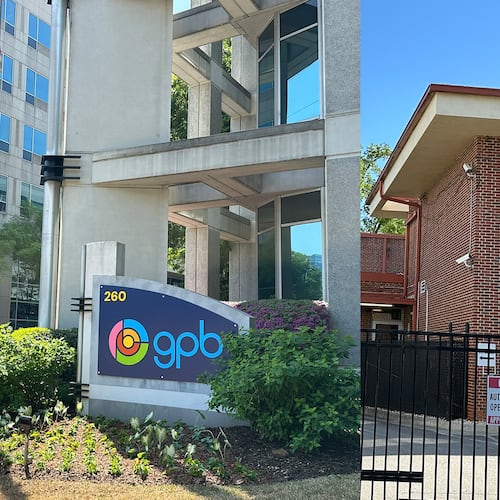Melvina Jones has worked for Delta Air Lines for 14 years, starting off as a part-time gate agent at the Atlanta airport and eventually moving into a full-time job in reservations.
But after about six or seven years in reservations, “I had to decide what I was going to do next,” she said.
Lacking a college degree, Jones felt she had few options for career mobility or breaking into corporate jobs.
But there was a shift that started in the summer of 2020, when Black Lives Matter protests over the police killings of George Floyd, Breonna Taylor and Atlanta’s Rayshard Brooks. In August 2020, Delta CEO Ed Bastian wrote a memo to employees pledging to become “a more just, equal and anti-racist company,” including removing barriers for roles that do not require college degrees.
Later that year, Delta and Bastian joined dozens of other companies and CEOs to help form OneTen, a non-profit that works to improve the skills of Black workers to help close the racial wealth gap. The organization’s mission is to get one million Black people without a four-year college degree into a living wage career over the next 10 years.
“When I thought about next steps, I didn’t think about corporate because I didn’t think I belonged,” Jones said. “I never saw my reflection in the corporate mirror and never really considered it.”
The rise of OneTen changed Jones’ career path at Delta, which was recently highlighted in a case study.
Three years ago, “You had a slew of CEOs across the nation that were trying to determine what could they do in this time of uncertainty,” Debbie Dyson, CEO of OneTen, told The Atlanta Journal-Constitution. Those leaders decided they could use the power of their influence to gather other CEOs of Fortune 500 companies into one coalition.
“It’s not to say that we do not believe that, you know, a college degree is important and relevant and necessary for many,” Dyson said. “But there is a belief that if you look at jobs that are posted today ... 60% probably really do not need a college degree to be ready.”
OneTen connects companies looking to hire and workforce development organizations that can provide skills training, which includes online universities and coding bootcamps, with people who are looking for a change in their career, like Jones.
In recent years, companies and government agencies facing a staffing crunch have examined whether many jobs should require four-year degrees or other credentials or whether such requirements present unnecessary hurdles.
Delta created an apprenticeship program to promote employees who are often overlooked. The program also focuses on training hiring managers to develop those employees.
Credit: arvin.temkar@ajc.com
Credit: arvin.temkar@ajc.com
In 2021, Jones took a position in Delta’s diversity, equity and inclusion team that did not require a college degree. She now works as an equity strategies coordinator overseeing the company’s peer support program, including the recent launch of a financial well-being program.
Jones is one of the approximately 86,000 hires OneTen has helped facilitate in the last two and a half years, Dyson said.
And Delta is not the only Atlanta company that is part of OneTen. Around a dozen of the more than 70 companies now in the coalition have a large presence in the city, like Lowe’s, Allstate and ADP, Dyson added.
Addressing the racial wealth gap in Atlanta is a particularly pressing issue. The city has the highest income inequality among large U.S. cities, according to a recent AJC analysis of data from the U.S. Census Bureau. The median income for a Black household in metro Atlanta was around $61,000 in 2021, while the median income for white household was more than 50% higher — roughly $93,000.
OneTen aims to close these gaps nationally. Every employer has to meet a minimum living wage target that OneTen has created based on a blended average of the MIT living wage calculator. In metro Atlanta, one adult with no children should be making minimum more than $18 per hour to be at a living wage, according to the calculator.
To have a job with a wage that OneTen considers “family-sustaining” based on your skills rather than your degrees can be life-changing.
Skills-first hiring, Jones said, offers “an ability to show I’ve learned all these skills in my whole life, so I’m still valuable, even though I may not have a four-year degree.”
At Delta, “it’s been an overall morale booster,” she said, allowing people to feel they “can really grow and move around.”
The Atlanta Journal-Constitution and Report for America are partnering to add more journalists to cover topics important to our community. Please help us fund this important work at ajc.com/give
Keep Reading
The Latest
Featured




